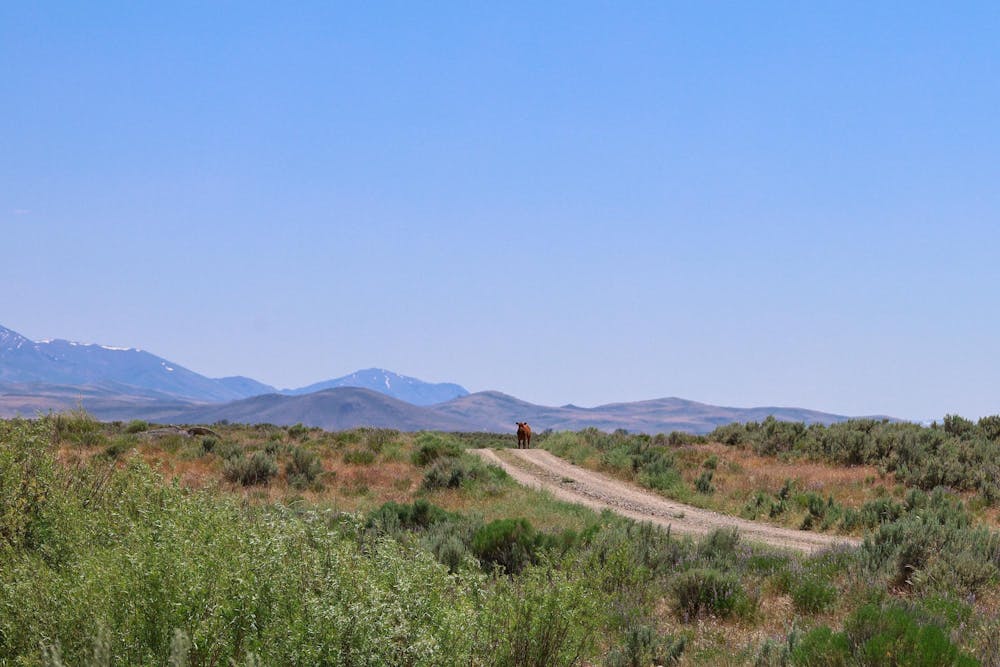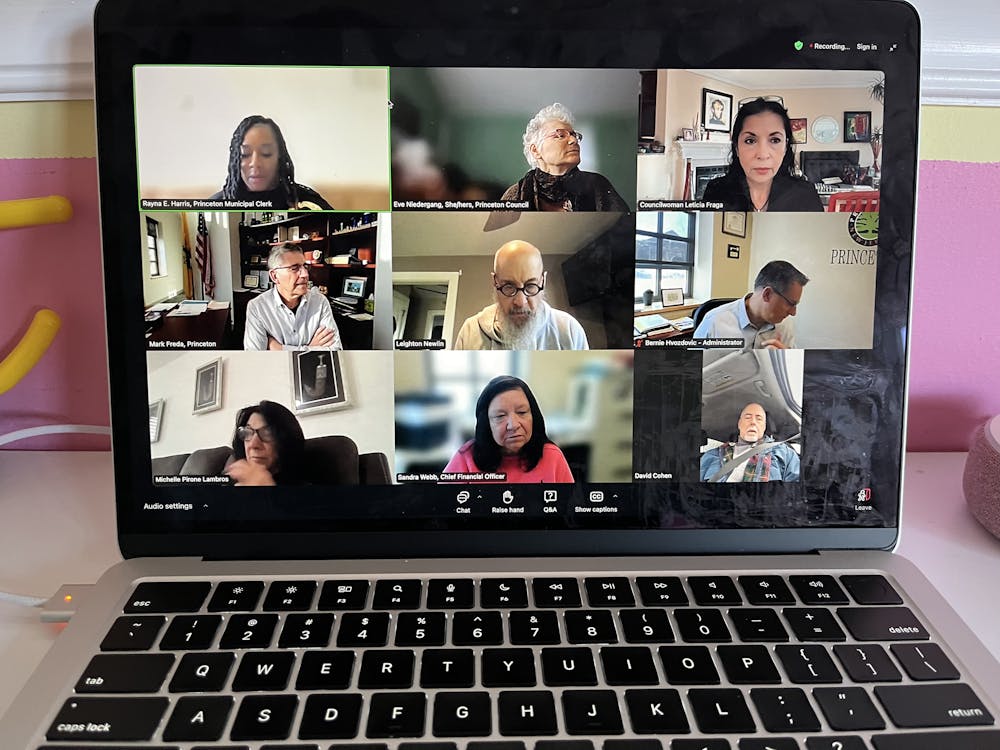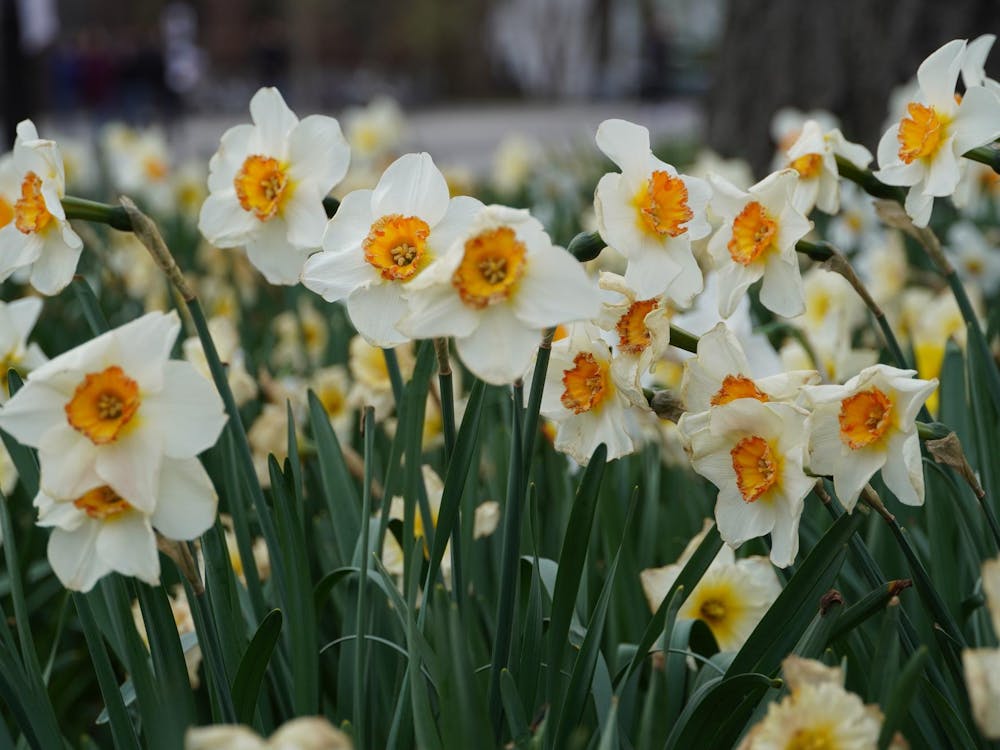One tip on traveling to the Silver State: it’s “Neh-VAD-uh,” not “Neh-VAH-duh.” During the nine days I spent there for fieldwork, I got some strange looks for using the latter pronunciation. Not necessarily offended looks, but ones that light-heartedly suspected me to be a non-local — a belief confirmed when I would inevitably reveal myself as a lifetime New Jerseyan.
This summer, I interned at Blue Lab, an environmental research and storytelling group, specifically contributing to an audio podcast investigating problems with mining for the green energy transition. For nine days in July, we visited Reno and Winnemucca, talking to people affected or soon-to-be affected by the controversial Thacker Pass Mine.
I was relatively well-prepared, I thought: I read books about mining, learned how to use audio recording equipment, and packed many kinds of medication. However, I soon was caught off-guard by the small but significant distinction of Nevadan lingo. Not wanting to draw attention to my status as an outsider, I tried so hard to sound like a local that my pronunciation of “Nevada” actually sounded more like a mix of unidentifiable English dialects.
I’ll admit that even now, the pronunciation still doesn’t come easy to me. In my defense, my version aligns with the Spanish word “nevada,” meaning snowy, probably originally used for the state due to the snow-capped Sierra Nevada mountain range. This land, in part or in whole, has been given many different names by the various inhabitants throughout the years, from indigenous peoples like the Shoshone, Paiute, and Washoe to later settlers. It would be difficult, even impossible, to argue that there is a “correct” pronunciation.
This difference between pronouncing a short “a” and enunciating a long “a” in the word “Nevada” was representative of a special pride Nevadans have in their state. Among the people we spoke to, from those who had resided in Nevada their entire lives to people who had been in the state for only several years, each person seemed to hold a strong affection for their state, which was not quite relatable to me during my short stay there.
Part of being a writer or researcher on any subject is understanding how you can and cannot relate to a community. When looking at the giant mountains from the highway, some so far away that they appeared blue, or when smelling the sharp scent of the sagebrush in the dry heat of noon, or when listening to the trickling sounds of water flowing through the McDermitt Caldera, I felt awe and ache at what was soon to be erased. In these moments, too, I felt a kind of appreciation that made me believe I understood how I related to this community.
But just saying the name of the state made me remember my place in Nevada as a visitor and observer. When I looked around me, I saw a beautiful land, but I didn’t see a home that my ancestors and I had lived in.
Yet up until now, I’ve only ever written about issues that are deeply related to myself and my community, and even though the green energy transition will affect everyone, nearly 2000 miles separates me from Thacker Pass. As I put together the podcast, I’m plagued by questions of authenticity and neutrality that I don’t think will ever leave me, at least for the near future. Perhaps not being from the region allows me to take a more “objective” position in research. The trade-off, though, is agonizing over word choice and framing, not knowing if what I’m writing misses crucial context that is obvious to a local. What constitutes “we,” and what is “their”?
I promised myself a few days into the trip that I’d return to Nevada one day. I’ve yet to see the tiny Kings River pyrg snail or the great Lahontan cutthroat trout, just to name two species native to the state. When I get better at driving — or maybe find someone who can drive me — I want to take a trip through Nevada’s portion of Route 50, the “Loneliest Road in America,” which will soon have a major new transmission line running alongside. Even in this distant future, you’ll probably still hear me saying “Ne-VAH-duh.”
Christopher Bao is an assistant News editor and the accessibility director for the ‘Prince.’ He is from Princeton, N.J. and typically covers town politics and life.










